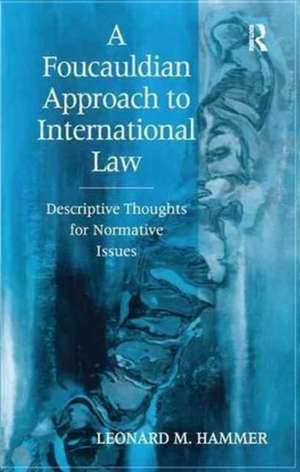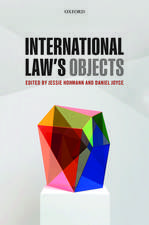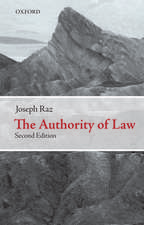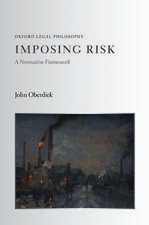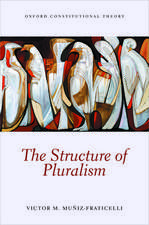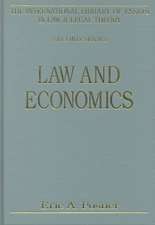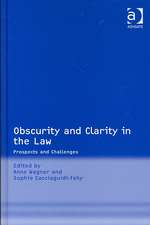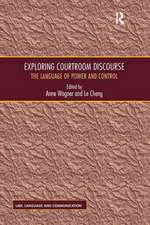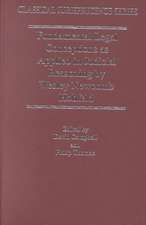A Foucauldian Approach to International Law: Descriptive Thoughts for Normative Issues
Autor Leonard M. Hammeren Limba Engleză Paperback – 28 noi 2016
| Toate formatele și edițiile | Preț | Express |
|---|---|---|
| Paperback (1) | 469.34 lei 6-8 săpt. | |
| Taylor & Francis – 28 noi 2016 | 469.34 lei 6-8 săpt. | |
| Hardback (1) | 1049.99 lei 6-8 săpt. | |
| Taylor & Francis – 28 mar 2007 | 1049.99 lei 6-8 săpt. |
Preț: 469.34 lei
Nou
Puncte Express: 704
Preț estimativ în valută:
89.81€ • 93.77$ • 74.33£
89.81€ • 93.77$ • 74.33£
Carte tipărită la comandă
Livrare economică 04-18 aprilie
Preluare comenzi: 021 569.72.76
Specificații
ISBN-13: 9781138277472
ISBN-10: 1138277479
Pagini: 162
Dimensiuni: 138 x 216 x 16 mm
Greutate: 0.45 kg
Ediția:1
Editura: Taylor & Francis
Colecția Routledge
Locul publicării:Oxford, United Kingdom
ISBN-10: 1138277479
Pagini: 162
Dimensiuni: 138 x 216 x 16 mm
Greutate: 0.45 kg
Ediția:1
Editura: Taylor & Francis
Colecția Routledge
Locul publicării:Oxford, United Kingdom
Cuprins
Contents: Introduction; Theoretical grounds for international law; Recognition, transformation, and power; Transgressing problems of customary international law; A descriptive moment for freedom of religion or belief; Human security from a transformative context; Non-governmental organisations and power; Conclusion; Bibliography; Index.
Notă biografică
Leonard Hammer is Senior Lecturer at Zefat College, Israel. He holds the following qualifications: JD from Georgetown University, LLM from NYU, and PhD from University of London (SOAS). Dr Hammer has published books and articles in the area of international law and international human rights, including the 2001 book The International Human Right to Freedom of Conscience (Ashgate). He has received a number of research grants and fellowships and is currently involved in a long-term project concerning holy places as well as developing programmes for Zefat Law School.
Recenzii
'This book presents an innovative and interesting approach to international law. It addresses some fundamental issues and problems within international law, offering a fresh perspective on state power via the ideas of Foucault. It should serve as the means for deepening our understanding of the international legal framework.' Ruth Lapidoth, Hebrew University, Israel and Recipient of the 2006 Israel Prize in Law 'For those who are unravelling the intricacies of international law, it will serve them well to consider Leonard M. Hammer's well-researched book...Anyone dealing with international law and politics should consider contemplating the ideas and reflections on Foucault that Hammer has presented in this book.' Law and Politics Book Review 'This work urges a de-coupling of international law from the traditional Westphalian notions of state sovereignty, allowing for the interaction and influence of actors above and below the state level. By doing so, the author makes an important contribution to the discussion of a more accommodating framework of international law and international relations. He argues convincingly for a transgressive framework, suggesting that the focus should be on the fluidity emanating from on-going discourse rather than on a more static outcome-based apporoach.' Singapore Yearbook of International Law 'Prozorov's text gives us a resonant reading of the constituent possibilities of freedom in Foucault's work.' The Leiden Journal of International Law
Descriere
The objective of the book is to offer Foucault's understanding of power and knowledge as the basis for interpreting the international system. Foucault begins to account for a current understanding of power and knowledge in a complex and multifaceted world that has not been adequately accounted for in current studies. The key advantage is that Foucault offers a transgressive approach that is not rooted in any single or systematic interpretation. The significence of the approach therefore lies in the fact that no one school of thought must be adopted in order to comprehend the importance of a particular action or development. Rather, the author intends to offer an integrative understanding that would be sufficient for a number of different approaches to international law and international relations.
